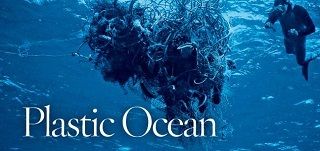From Guest Blogger Damian: Plastic Materials and Our Environment–What We Can Do Better

The sad truth however, is that these plastic materials are not only toxic to the environment we live in, they also have a direct impact on our health. This is not an article all about doom and gloom though. While we will go through the various reasons why plastic materials are bad for the environment, we will also discuss the different ways in which you can turn your plastics from potential to trash to more useful creations.
Here comes the part that everyone hates to hear but needs to be discussed once again; The impact of plastic materials on the environment. Where does all of that plastic you throw away go? Well a lot of it ends up in lakes, rivers and the oceans either intentionally or in most cases by accident. All of these plastics float on the top making it an attractive looking food source for marine life. We’ve all seen the sad photos of what happens to these fish and birds who eat this.
Another harmful effect these products have affect us directly. If these plastics do not end up in our planet’s waters, they end up in landfills. As these plastics are buried under the soil, harmful additives found in them seep through the ground and into our drink water. Just these two facts alone should be enough for us to change our buying habits but sadly, this is not the case. The biggest reason why people have not changed their habits has less to do with not caring and more to do with people not knowing what other options are out there for them.
The first option people have is to reduce their plastic use by reusing. For instance, bringing your bags for shopping. Beyond the convenience of not having to transport your own bags around, these supermarket plastic bags offer little else of value. In fact, most of these bags end up blowing across our cities into bushes and trees after we use them.
Another example is to stop buying bottled water. Rather than giving money on more trash, using refillable containers will greatly reduce our plastic trash output. Maybe a bit more surprising is using certain products that we buy for our faces. That`s right, many face washes and toothpastes contain chemicals such as polyplene are made from the by-products of plastics. These leftovers are next to impossible to recycle and are thrown out into the dumps with all the rest of the garbage.
So now that we have talked about how to reduce our plastic use, let’s talk about recycling. Recycling is a great way to keep these plastic products out of our oceans and landfills and to be reused as future plastic products. In this day in age, we are all educated on the importance and benefits of recycling habits. After all, recycling reduces energy usage, air and water pollution, and lowers greenhouse gas emissions. Start from your own home by separating your waste, it is only a matter of habit. Make sure you always throw your plastic into a dumpster
Apart from reduce, reuse, recycle as key components of modern waste reduction there is a popular trend called upcycling. It defines a process of converting waste materials or useless products into new products. Almost everyone has things around the house that are not being used, so why not try and be a bit crafty, make a great trendy handbag out of plastic bags, use your old plastic soldiers to make a fruit bowl, or simply create hanging pots for your flowers out of plastic bottles? People are actually selling upcycled products nowadays and the market is big.
There are many ways to break up with plastic, so take one step at a time. Once you adopt these basic waste reduction principles, they will become your daily routine. Remember that by polluting the environment we are actually being irresponsible to ourselves.
